There’s nothing wrong with wanting to know where you or your family members come from. Today, that’s very easy with at-home testing kits like AncestryDNA. Over 18 million people have used the platform to find their roots. But what about the times when someone submits a child’s DNA without the parent’s consent?
That’s exactly what happened to this mom whose mother took her grandchild to take an ancestry test but wanted it to be a secret. The mom, of course, found out and was so livid that she started considering reporting her own mother. But first, she asked the Internet to weigh in: should she go scorched earth on her mother or just let it go?
A woman took her grandchild to take an ancestry DNA test without the mother’s consent

Image credits: Getty Images / Unsplash (not the actual photo)
After she found out, she considered cutting ties with her mother and even reporting her
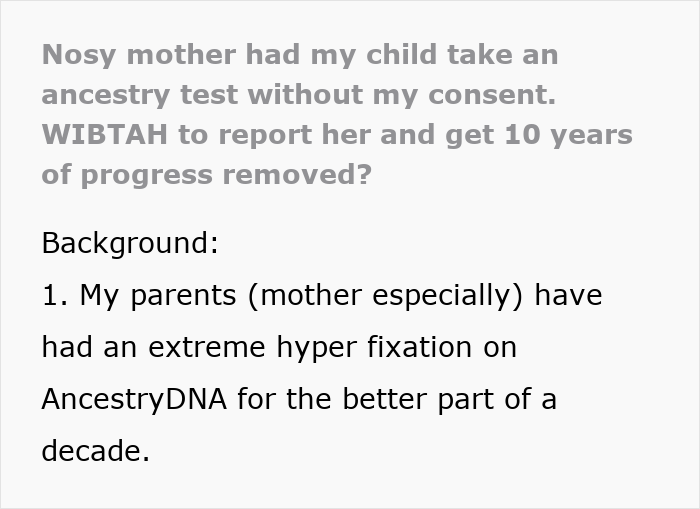
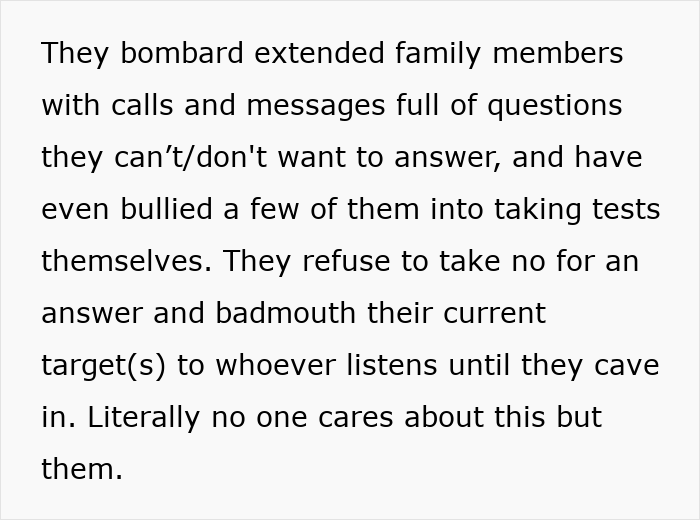
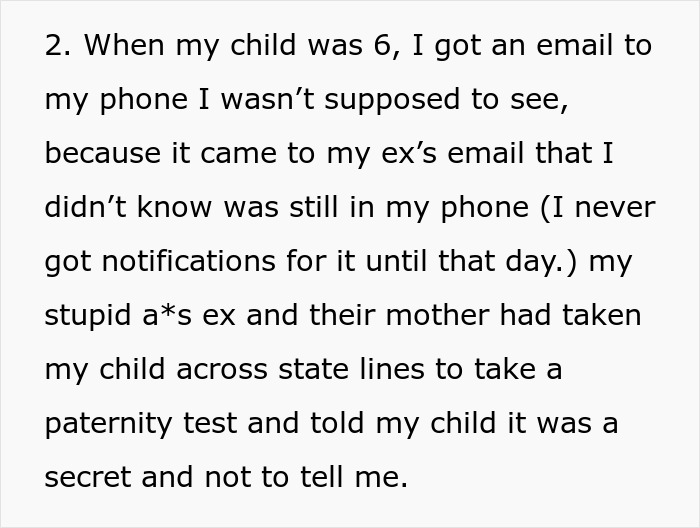

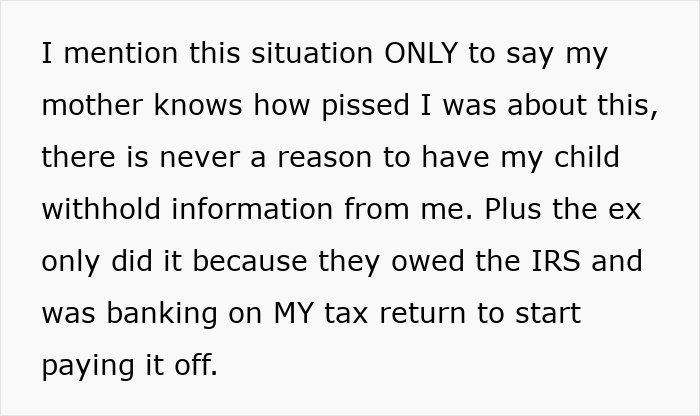

Image credits: MART PRODUCTION / Pexels (not the actual photo)
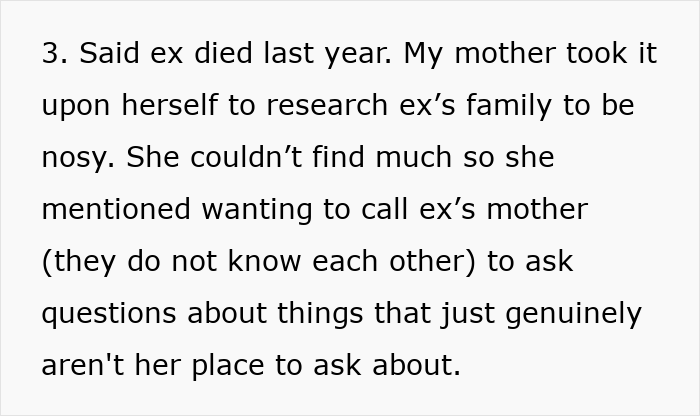
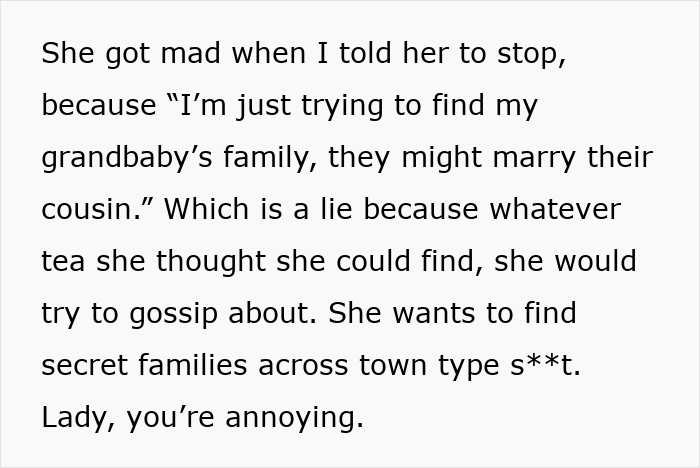

Image credits: Vitaly Gariev / Unsplash (not the actual photo)

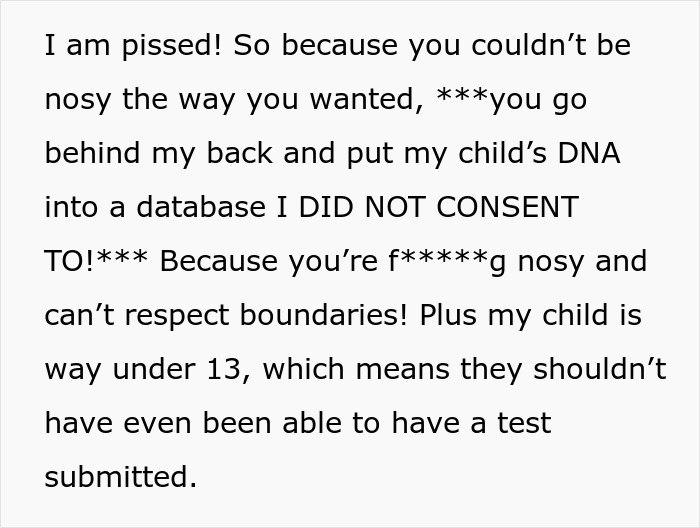
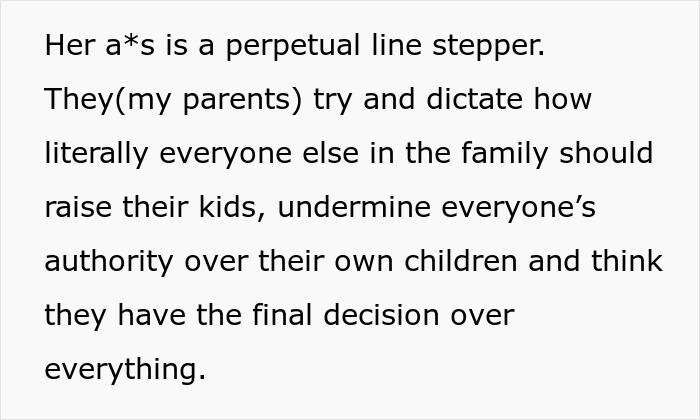
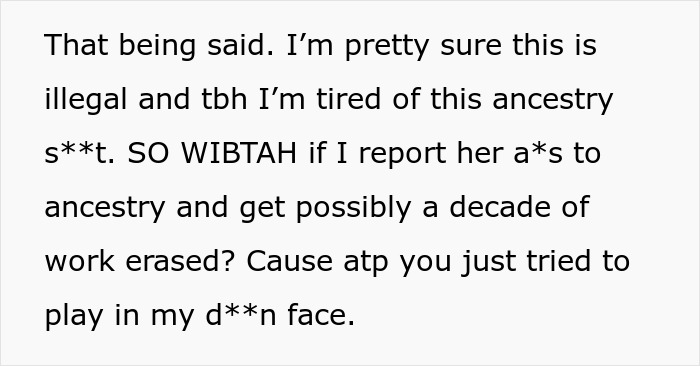
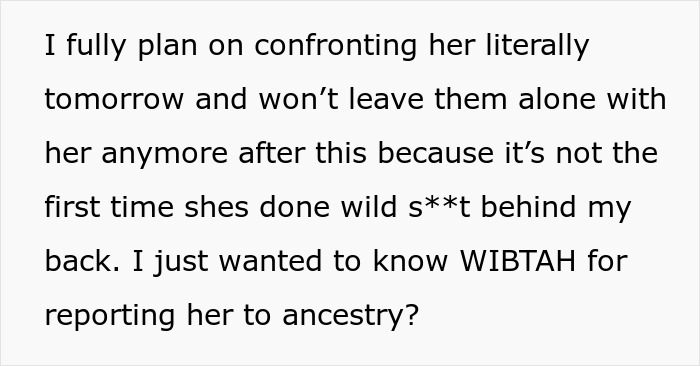
“My mother just wants to gossip about tragic [passings] and kissing cousins,” the mom added in an update
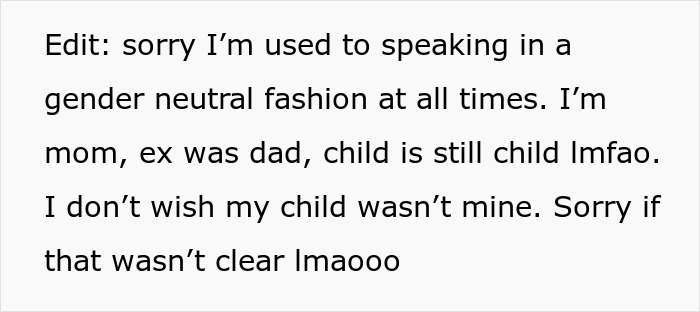

Image credits: Kateryna Hliznitsova / Unsplash (not the actual photo)
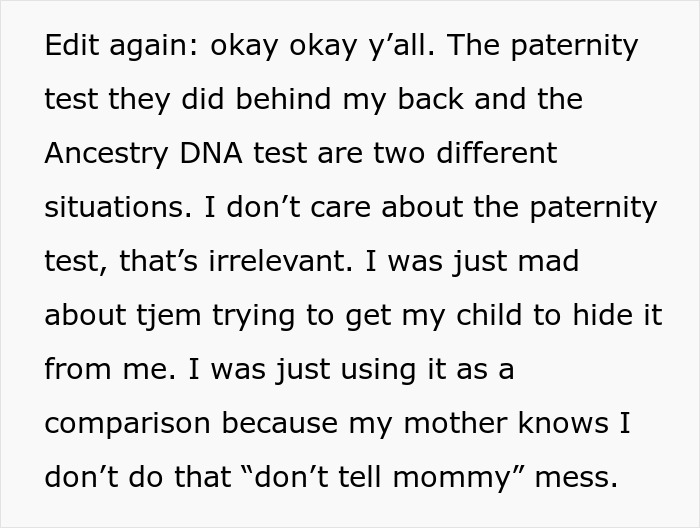
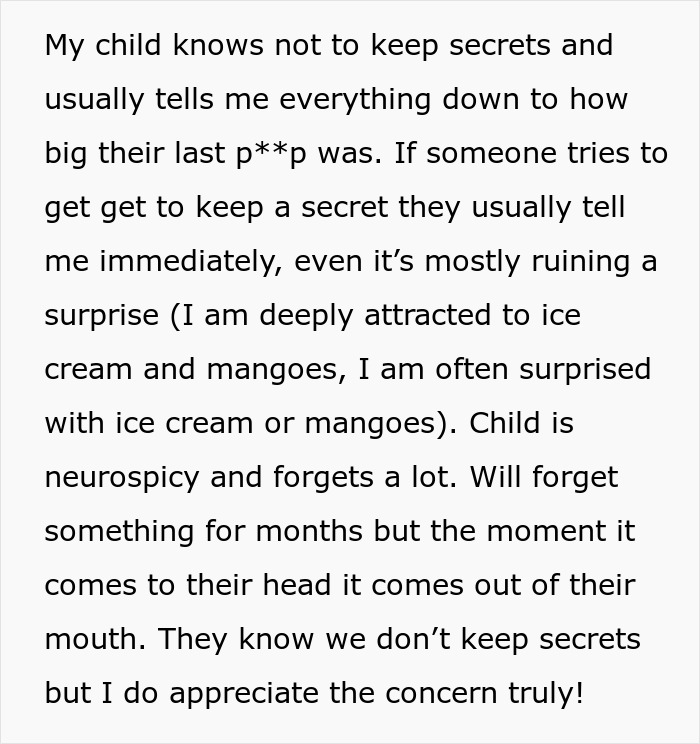
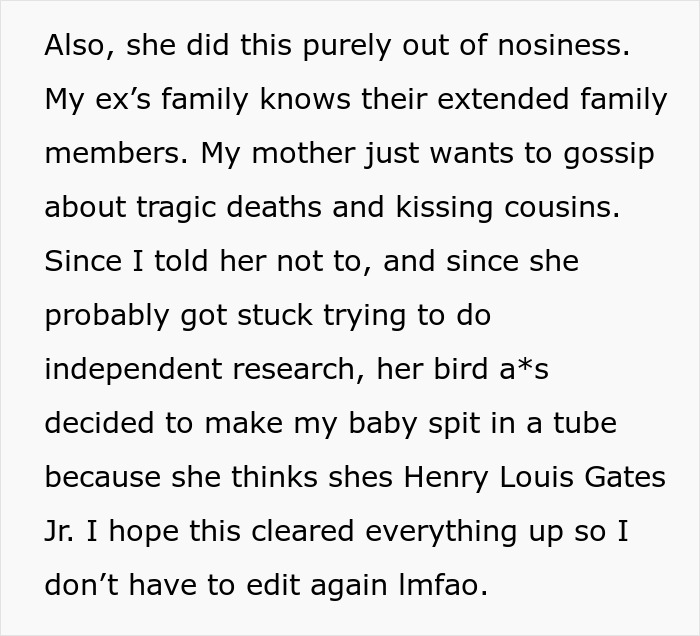
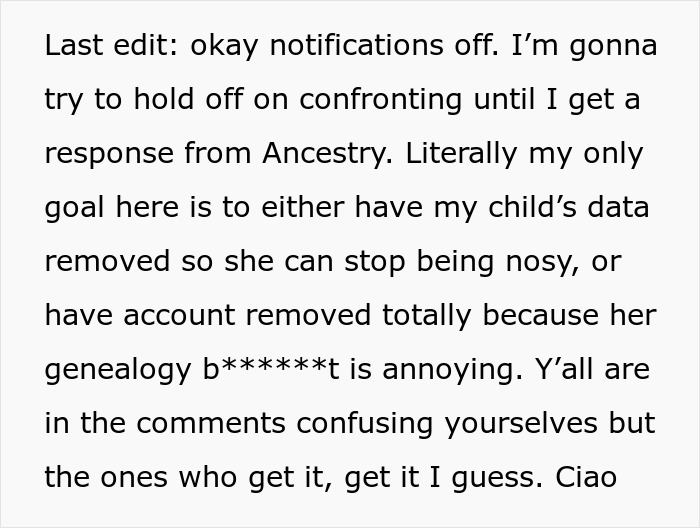
Image credits: throwRA_hurtgirlz
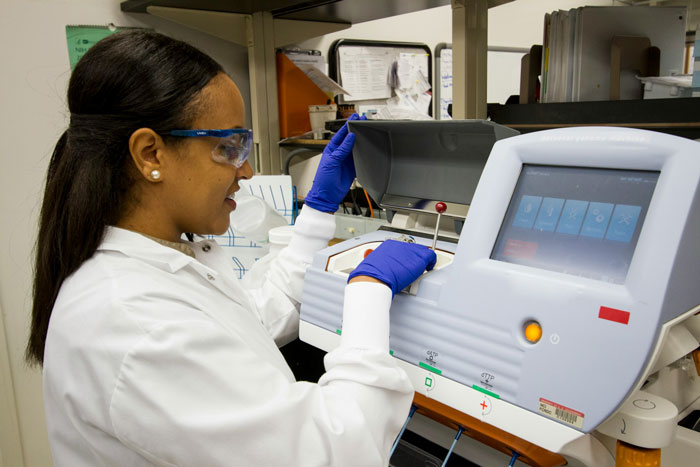
Image credits: NCI / Unsplash (not the actual photo)
Some companies might store DNA samples and results indefinitely
There’s nothing murky about parental consent when it comes to ancestry DNA tests. AncestryDNA, for example, writes on its website that only parents and legal guardians can register minors for testing kits. “If you are not their parent or legal guardian, you cannot register their kit,” the website says.
It’s understandable why parents wouldn’t want to have their children’s genetic information in the databases. As one commenter pointed out, it’s not just that one platform will have the test results; they will be available for download into other online databases.
AncestryDNA offers the option to delete one’s test results. With other platforms, however, it might be harder to delete your data from them forever. As James Hazel, PhD, JD, a postdoctoral researcher at the Law Centre for Health and Life at the University of Amsterdam in the Netherlands, explained to Consumer Reports, some companies have “little to no policy in place, or policies that permit storage of your sample and the data, sometimes indefinitely.”
That’s why Hazel strongly advises reading privacy policies attentively. 23andMe, for example, writes that if the consumer gives their consent, they might hold onto your sample and test results indefinitely in their biobank. Living DNA, on the other hand, keeps the samples and results only for six months or six months after the customer closes their account.
According to Hazel, people should look out for these clauses in the privacy policies:

Image credits: Vitaly Gariev / Unsplash (not the actual photo)
Finding surprise relatives through at-home test kits is not uncommon
The mom in this story seems quite fed up with her mother’s obsession with revealing some family drama through doing ancestry DNA tests. This might seem like a silly objective, but some people really do find out something juicy after they submit their DNA to these companies.
As Diahan Southard, founder of Your DNA Guide, explains to Bored Panda, genealogy research has been discovering family secrets for years. “The addition of genetic testing has just accelerated that rate of discovery,” she says.
“There aren’t any officially posted numbers telling us how many people make unexpected discoveries of close family members using these platforms, but as most people at least know someone who has made a discovery, the experience is not uncommon.”
Some folks are skeptical about whether or not at-home DNA test kits can be reliable. But Southard tells us that the margin of error is very slim. “DNA matching for close biological relationships is extremely accurate,” she says. “It is not possible for a lab error to accidentally create a close family member for you.”
“However, there are errors in interpretation of what those numbers mean. For every genetic relationship (that is measured in those numbers of centimorgans you see on the website) there are multiple genealogy relationships. For example, someone sharing 1384 cMs could be your grandma, your aunt, your half sibling or your grandchild. They could even be your first cousin.”
So, the grandma in this story shouldn’t be so happy if she finds some potentially juicy family goss. “We need to be careful about how we are interpreting the results before we start jumping to conclusions about who did what when and with whom,” Southard recommends. Her company Your DNA Guide does exactly that – it helps people decode the test results and find out what they really mean, without misunderstandings.
People gave the mom advice about how to remove her child’s information from the database
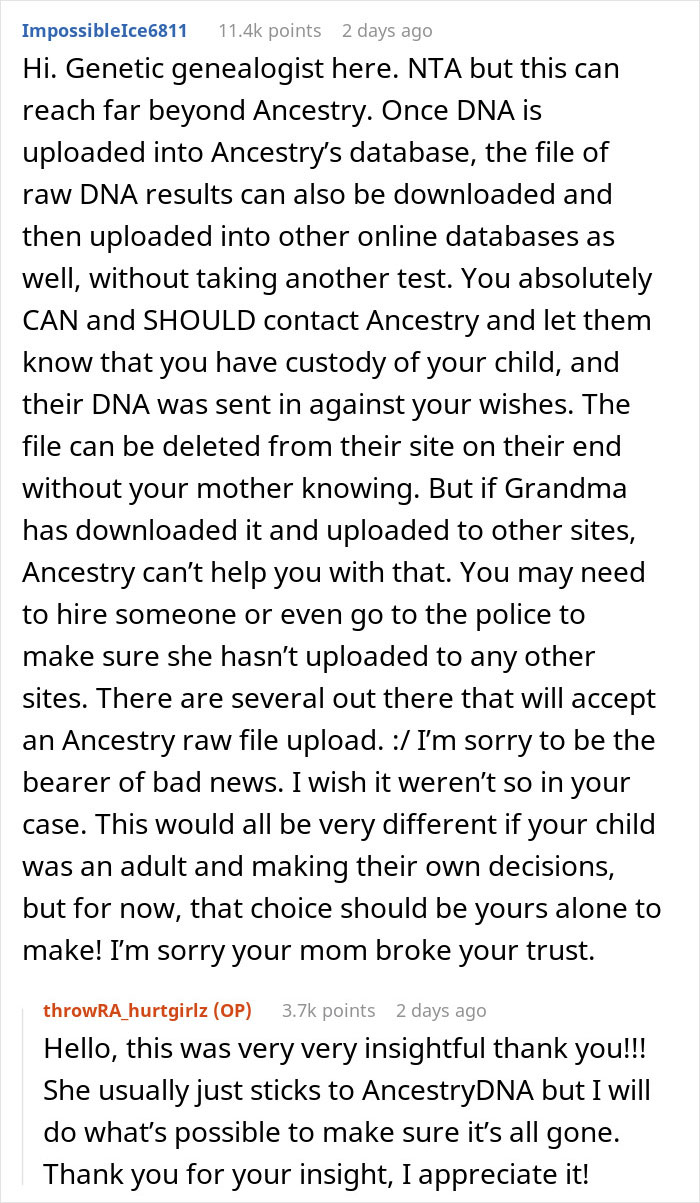
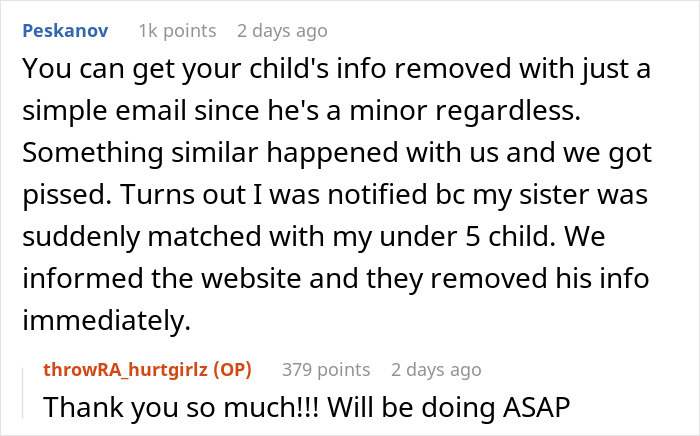
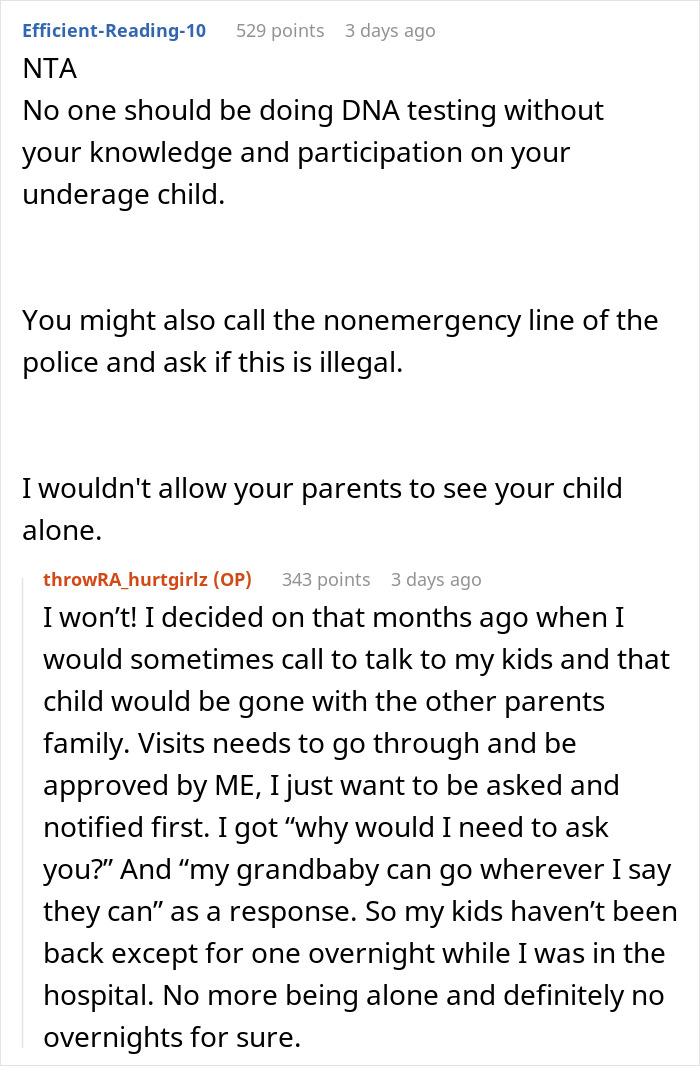
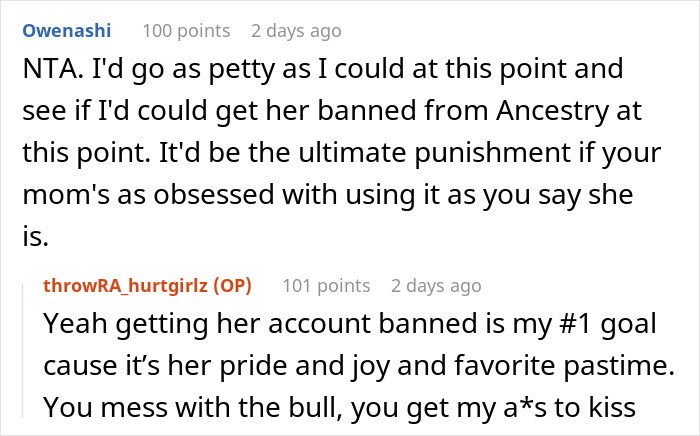
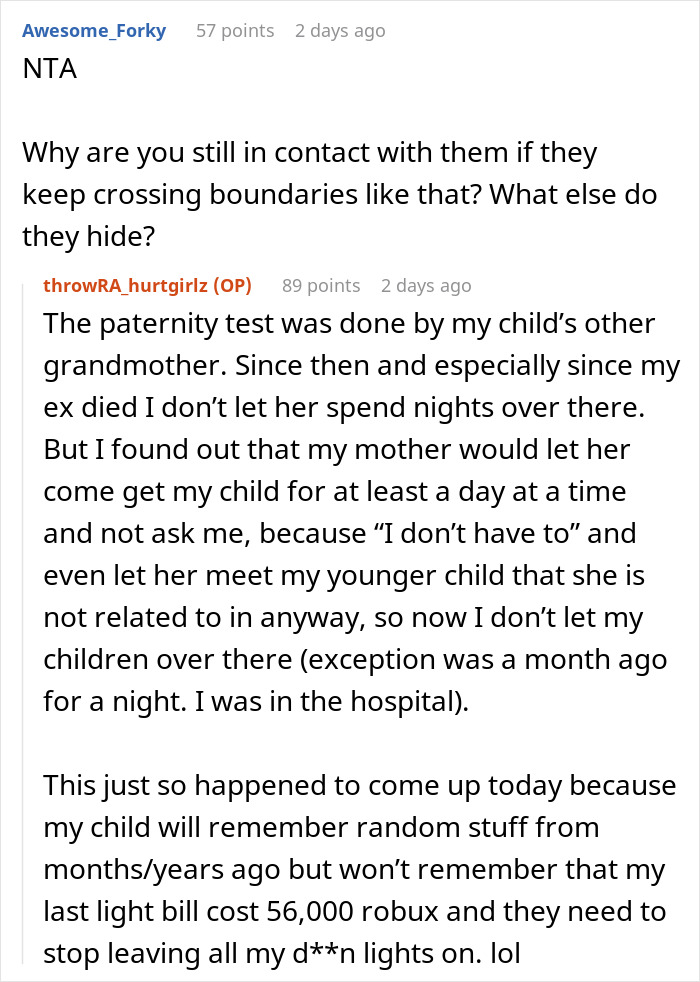
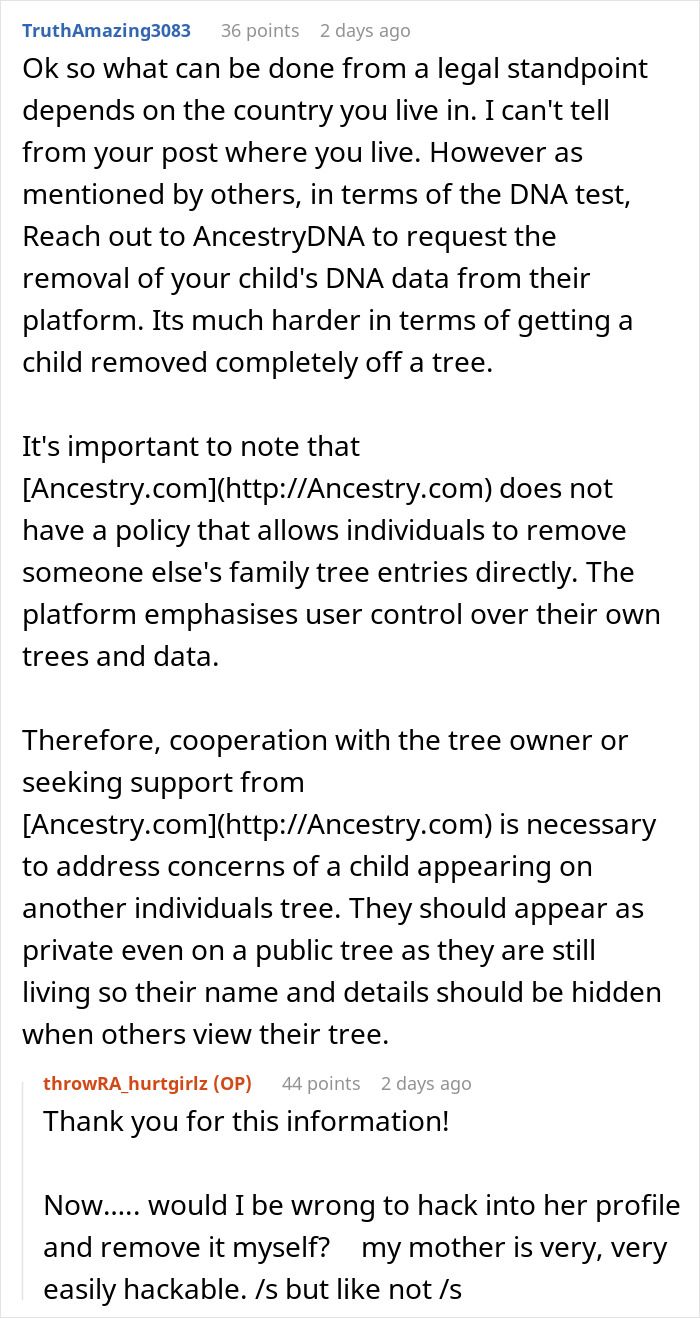
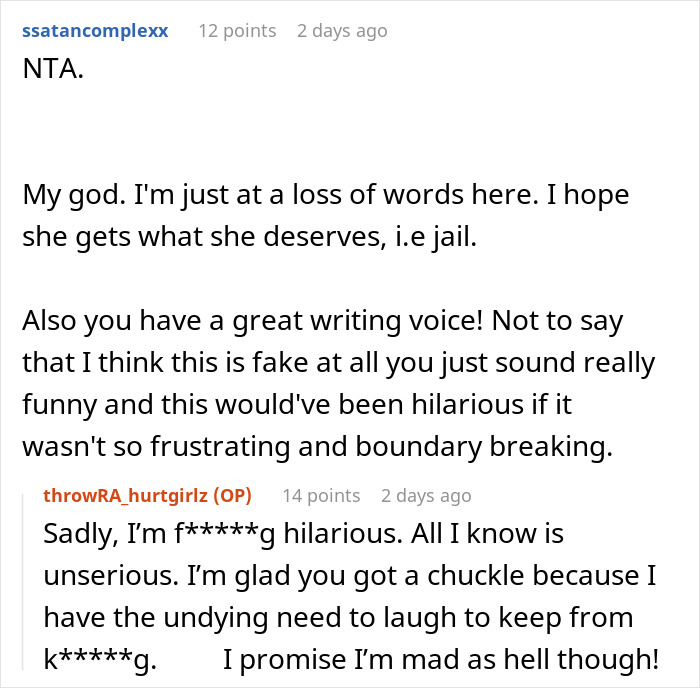
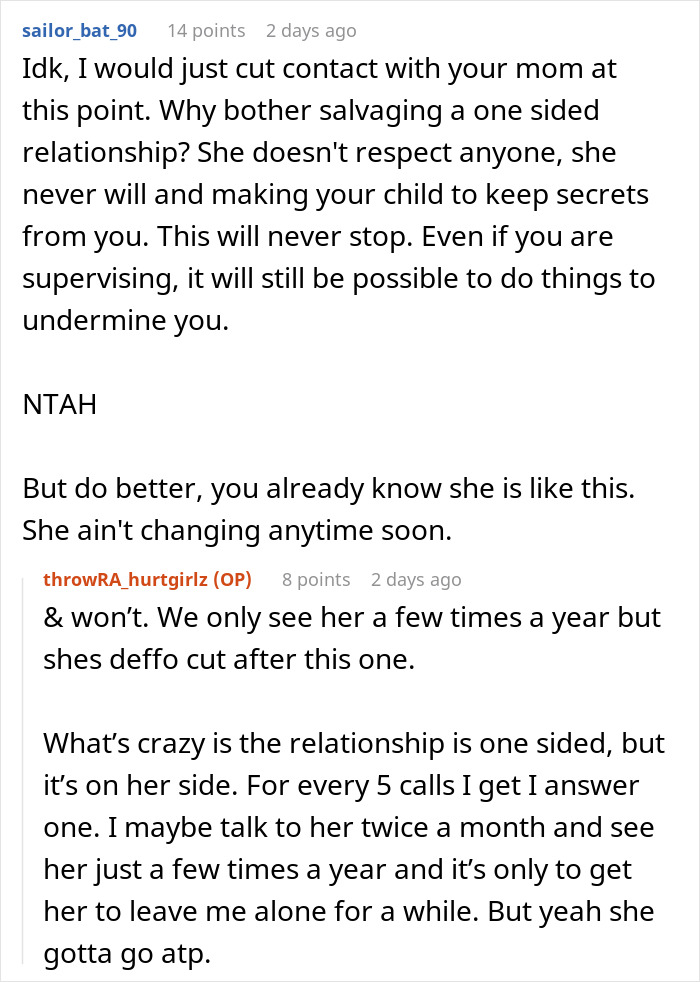
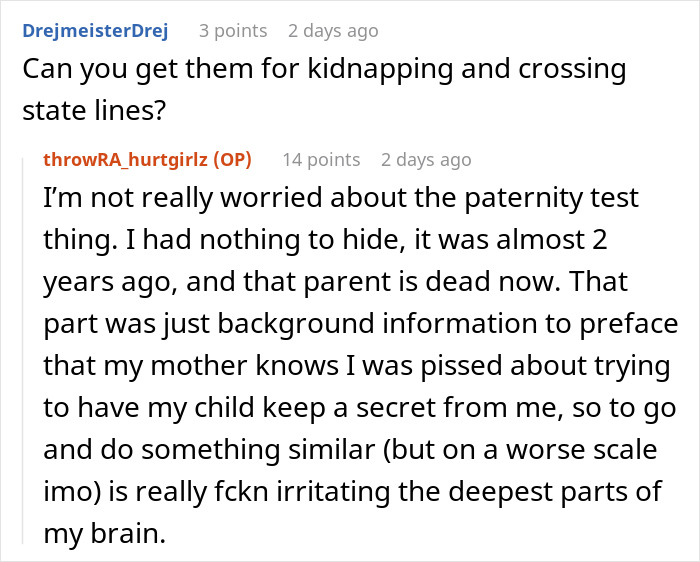
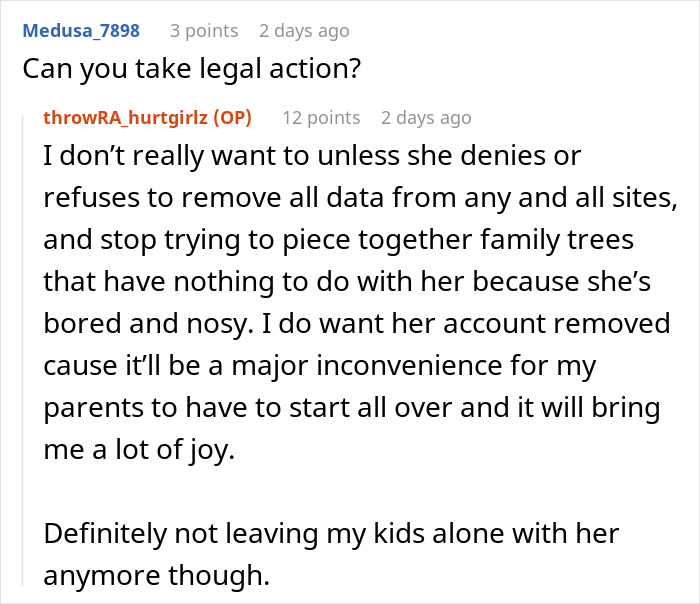
The commenters thought the grandma seriously messed up: “I’d file a police report”
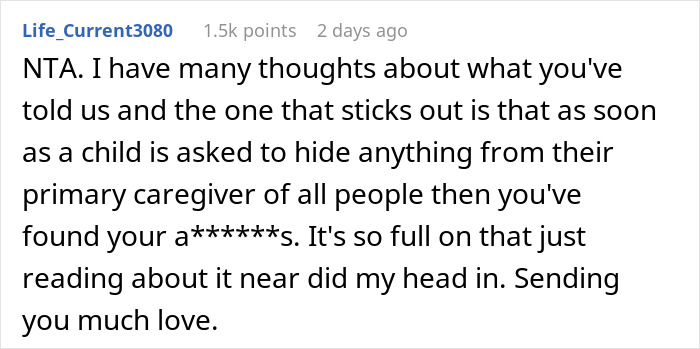

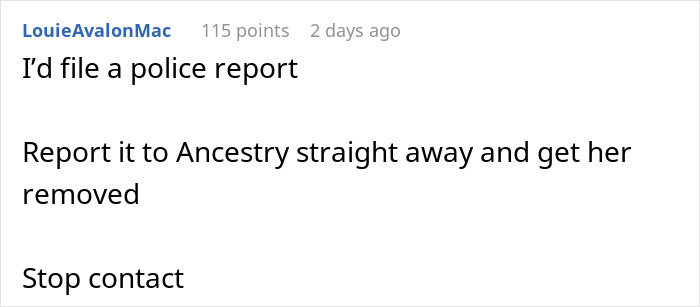

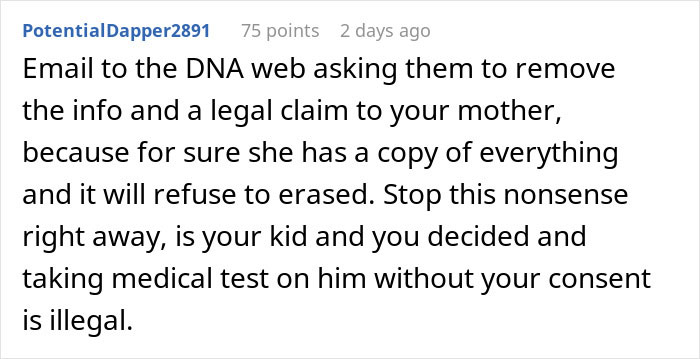

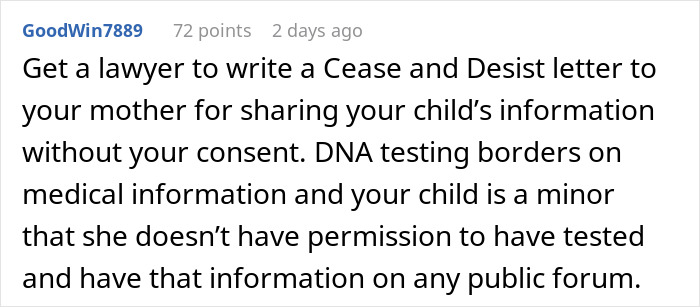
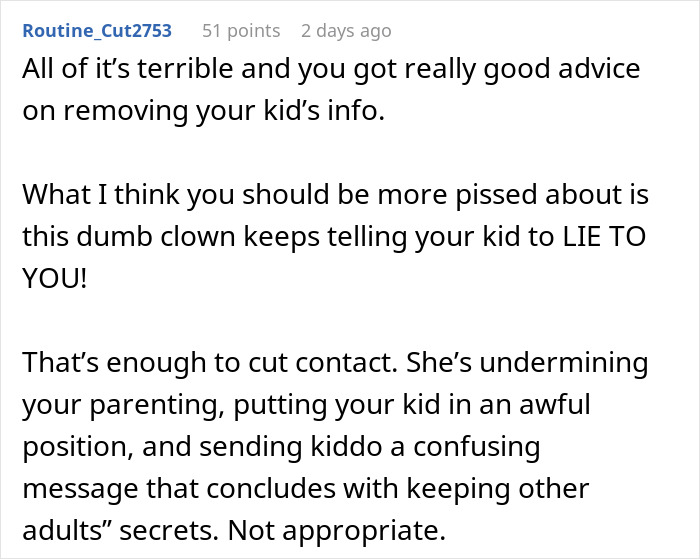



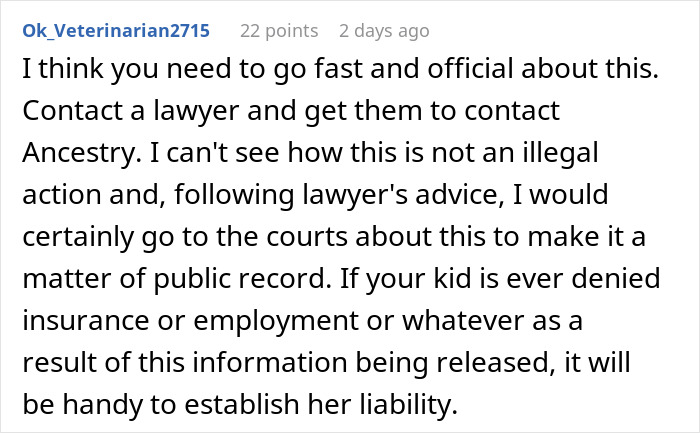
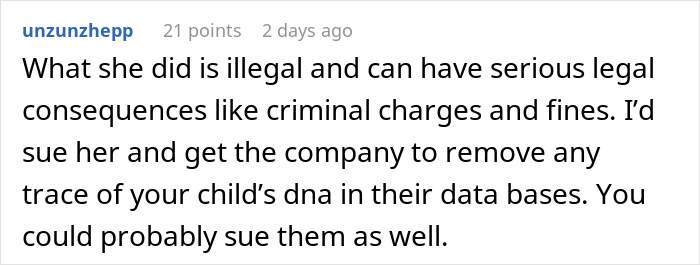
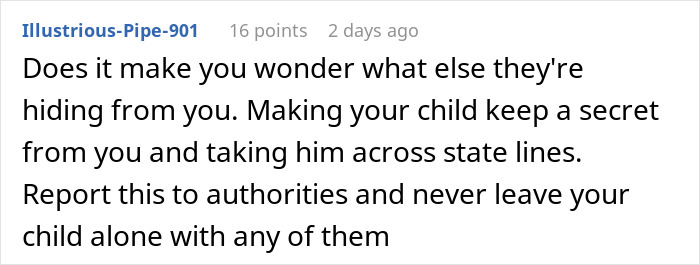
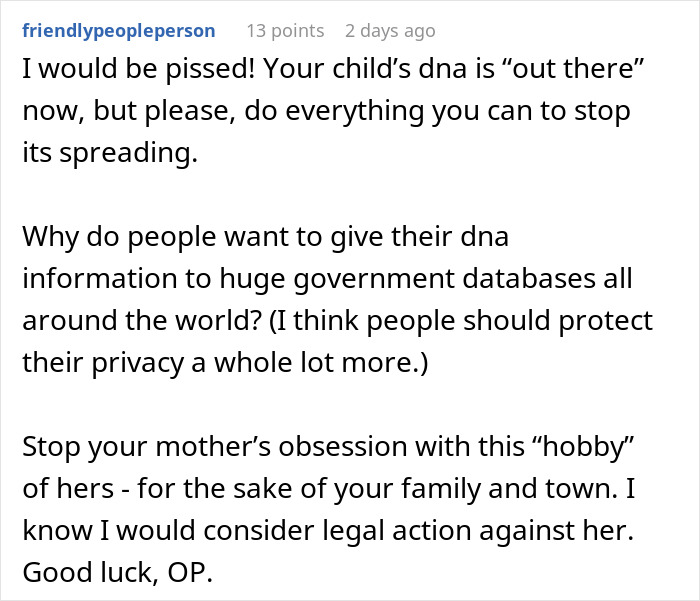


Others urged the mom to take this matter seriously and go to the authorities ASAP
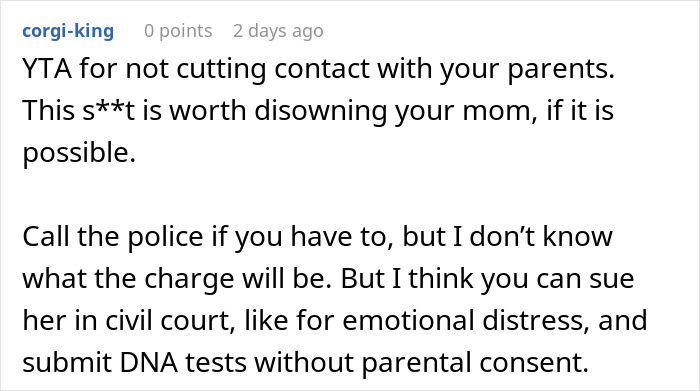
 Follow Us
Follow Us





